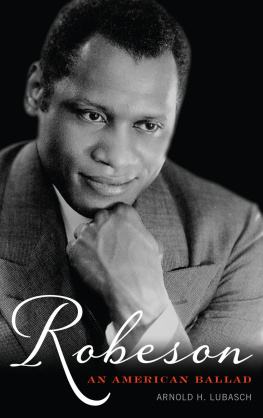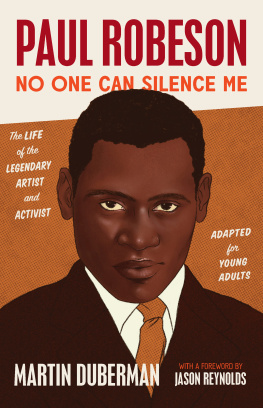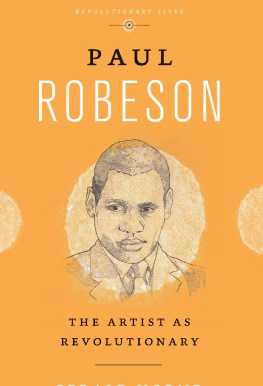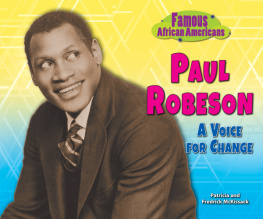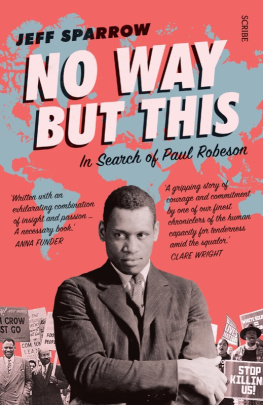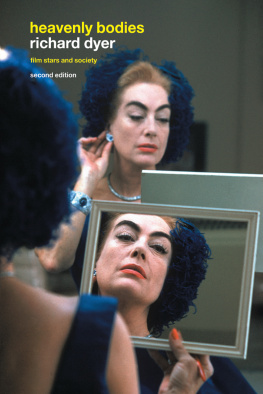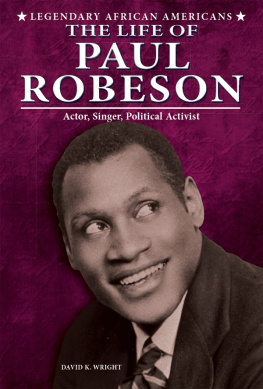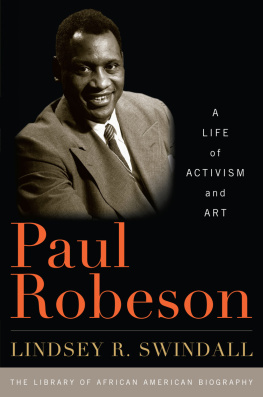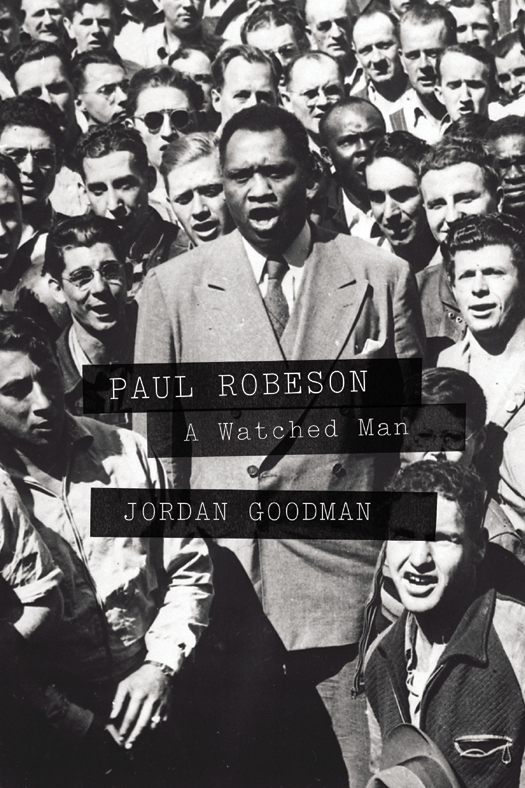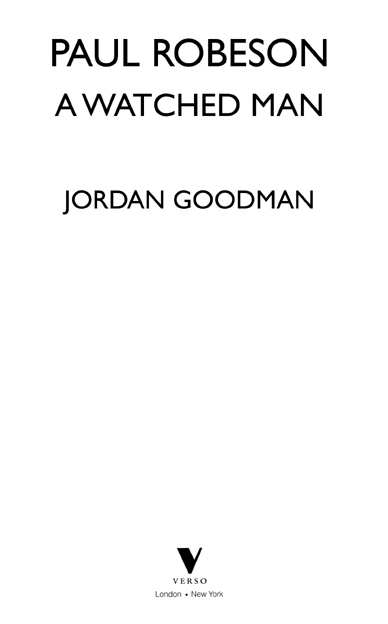First published by Verso 2013
Jordan Goodman 2013
All rights reserved
The moral rights of the author have been asserted
Verso
UK: 6 Meard Street, London W1F 0EG
US: 20 Jay Street, Suite 1010, Brooklyn, NY 11201
www.versobooks.com
Verso is the imprint of New Left Books
ISBN-13: 978-1-78168-131-2
eISBN (US): 978-1-78168-189-3
eISBN (UK): 978-1-78168-500-6
British Library Cataloguing in Publication Data
A catalogue record for this book is available from the British Library
Library of Congress Cataloging-in-Publication Data
A catalog record for this book is available from the Library of Congress
v3.1
For Dallas
Contents
Preface
In the Presence of Greatness
Toronto, February 11, 1956
In 1956, my parents, my younger sister, and I were living in Toronto. One day in early February, my mother told me and my sister that later in the week, she would be going out for the evening and our father would be taking care of us. Neither of us really understood what she meant, because this had never happened to us before, certainly not in the two years since we had come to Canada from Europe. Our mother was always there. What could be so important?
She was going to a concert, she told us. She said that the singer (his name, if she told us, meant nothing to me) held very special feelings and memories for her. In her mind she could hear his deep warm bass voice. She had heard him on the radio in Poland before the Nazis shattered her world. She knew what he looked like from photographs, but she had never seen him in person. It was going to be a once-in-a-lifetime experience for her, and for most of those in the audience.
My strongest memory of that evening was the perplexing experience of my mother going out and leaving my sister and me behind. Many years later, after my mother died, that memory, such as it was, came back to me. I knew that I had been seven years old at the time, but much more than that I couldnt say. In the intervening years I had also learned that the singer had been Paul Robeson. I became curious. When was that concert? It didnt take me long to find out: February 11, 1956. But why had my mother been so determined to go? That required more research.
In 1956, I discovered, Paul Robeson, one of the most famous African Americans of the twentieth century, had been allowed out of the United States for the first time since 1950. He was to perform in Toronto at Massey Hall to a sold-out audience of 2,800. The scheduled program was eclectic: Robeson would sing Negro spirituals, folk songs (Canadian, Chinese, Eastern European, and Yiddishat which my mother, who could speak very little English, probably cried her eyes out), and his signature tune, Ol Man River; he would be reading excerpts from Othello, poems by Shelley and Schillerespecially the Ode to Joyand poems by his own contemporaries and close friends, the Chilean poet Pablo Neruda and the African-American poet Langston Hughes.
The evening went exactly according to the plan laid out in the program. What was not announced was Robesons encore. The last time he had performed in Toronto, nine years earlier in May 1947, city officials told him that his appearance was on the condition that he would sing, but not speak. This time, no one stopped him. Robeson rounded out the tumultuous evening with a rousing speech about peace, freedom, and brotherhood. My purpose in life, he proclaimed powerfully and deeply from the stage, was to fight for my people, that they shall walk this earth as free as any man.
Oakland, September 20, 1942
When Paul Robeson arrived at the Moore Dry Dock, a recently integrated shipyard labor force was waiting there to greet him. In the previous year, President Roosevelt had issued an executive order banning all forms of discrimination in the countrys defense industry, and the men Robeson met were working together round the clock to make Liberty and Victory ships for the war effort.
As the countrys most famous African American, Robeson, who stood six foot three and weighed more than 220 pounds, was at the pinnacle of his career and his popularity. He was a household name. His voice, which one critic had described as one of the most beautiful in the world in the [sic] soft mellow resonance in its organ-like ease and power it exercises a spell that is inescapable, was known from coast to coast.
Robeson had dropped into the shipyard during the lunch break for a moraleboosting concert. Although the organizers may have hoped for a patriotic performance, what they got instead was pure Robeson, art and politics uncompromisingly combined.
The workers were scattered around the yard looking for places to sit and eat their lunch. A reporter from the Oakland Tribune who was on hand described the scene:
They put down their sandwiches and thermos bottles as Robeson sang Water Boy for the sheer entertainment value. They stopped chewing and listened silently as he introduced his Ballad for Americans. This will never be a real America until my colored brothers are working by your side. We too are real Americans We all have to be here together. Thats what democracy really means Then as the sun climbed over a steel shop, Robeson cupped his ear with his right hand took off his hat and broke into the Star Spangled Banner. Off came the shiny helmets, the goggles and the greasy hats, and three thousand men and women shouldered in beside the Big Negro to sing the national anthem. The whistle sent [them] back to their jobs. A thousand war workers hummed Old [sic] Man River and Water Boy as they arced their welding torches and went back to putting steel together for victory.
In contrast with the fantasy heroes of the present age, it is important to remember there have been celebrities who actually did something real, famous people who risked their careers and reputations and sometimes even their lives for their principles.
Paul Robeson was such a hero. From the 1930s to the 1960s, Robeson was the voice of the people. He once described what this meant to him in these words: When as a singer I walk onto the platform, to sing back to the people the songs they themselves have created, I can feel a great unity, not only as a person, but as an artist who is one with his audience.
Robeson was a magnet, a rallying point for people who shared his concerns. Enormous crowds listened to him spellbound, deeply moved. He drew millions from all over the world to his struggle, in a way that showed them their own struggles mirrored in his. He sang their songs to them in their own languages, Russian, Yiddish, Welsh. He was an international human being. In the United States, he fought strenuously for the human rights of African Americans; in the colonial world he supported movements for national liberation; and in the international arena he worked tirelessly for world peace.
His message of peace, equality and justice was understood as clearly on the streets of Manchester, Moscow, Johannesburg, and Bombay as it was in Harlem and Washington, D.C.
There has never been another popular entertainer with so much political impact. Robeson was also unique in the extent to which his politics and his art were inseparable. He was at the center of the most urgent political issues of the periodracism, colonialism, and the looming threat of nuclear war. He didnt just sing and speak his ideals; he put them into direct action. He cofounded the Council on African Affairs, a radical African-American organization to aid national liberation struggles in Africa; he was a driving force behind the world peace movement, which during the 1940s and 1950s was vital in keeping international pressure on both the United States and the Soviet Union to avoid war; and he played a critical role in the Civil Rights Congress and the National Negro Congress, organizations that paved the way for the 1963 March on Washington and the 1964 Civil Rights Act.



